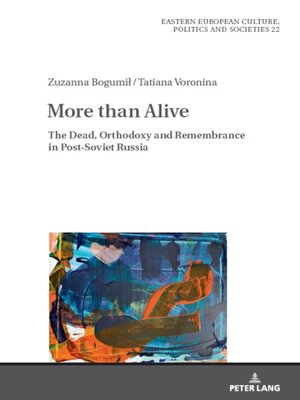More than Alive
ebook ∣ The Dead, Orthodoxy and Remembrance in Post-Soviet Russia · Eastern European Culture, Politics and Societies
By Irena Grudzińska-Gross

Sign up to save your library
With an OverDrive account, you can save your favorite libraries for at-a-glance information about availability. Find out more about OverDrive accounts.
Find this title in Libby, the library reading app by OverDrive.



Search for a digital library with this title
Title found at these libraries:
| Library Name | Distance |
|---|---|
| Loading... |
The process of the Orthodoxization of memory in Russia started long before the Russian Orthodox Church engaged in the memory politics. It was a grassrooted process initiated by both the living and the dead. By using religious symbols and rituals, various groups of living were restoring their relationship with the forgotten dead of Soviet repressions and war. When the Moscow Patriarchate has returned to active public life and started developing its religious memory infrastructure, the Orthodoxization process got a new up–down dimension. Finally, a turn of the Putin's regime towards religious commemorative practices caused the disappearance of the boundary between religious and political memory. The bricolage memory, consisting of elements of Orthodox tradition and Soviet memory culture, appeared.







